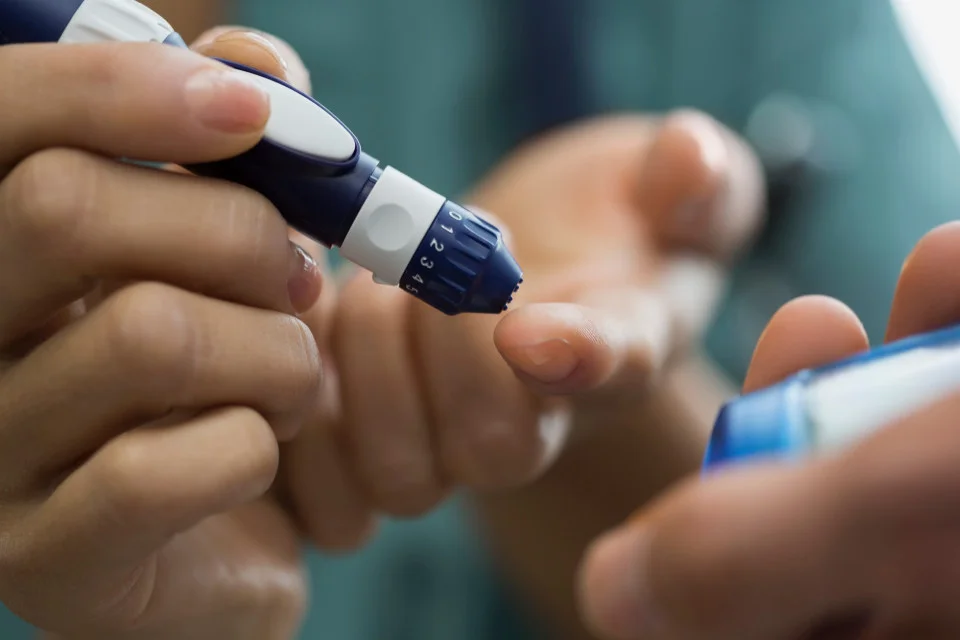Definitions: Insulin, Diabetes and Related Terms
Diabetes is estimated to affect over 1 in every 16 people in the UK, 1 in 9 in the USA and 1 in 11 of the world’s adult population.
Diabetes (diabetes mellitus)
A disease in which the body is unable to regulate the glucose (sugar) in the blood. In the type I form of diabetes, the body is unable to produce insulin. In type II diabetes (about 90% of cases) the body is unable to use insulin properly or doesn't produce enough insulin to manage blood glucose levels. If diabetes isn't treated it can lead to a number of complications including heart failure, kidney disease and limb amputations.
Gestational Diabetes
Pregnant women who have never had diabetes before but who have high blood glucose (sugar) levels during pregnancy.
Insulin
A hormone produced by the pancreas that lowers the amount of glucose in the blood.
Insulin Resistance
A state where elevated insulin and abnormally low insulin sensitivity over a prolonged period leads to an ability for the body to regulate normal blood glucose (sugar) levels as the body's cells fail to react to insulin. Insulin resistance can lead to type II diabetes and is linked to a whole host of conditions such as heart disease, obesity and metabolic syndrome.
Insulin Sensitivity
Describes how sensitive the body is to the effects of insulin. If sensitivity is low, the body will compensate by producing more insulin.
Metabolic Syndrome
A group of factors including insulin resistance (abdominal obesity, elevated trigylcerides, high blood pressure and low LDL cholesterol) that contribute to an increased risk of cardiovascular disease.
Prediabetes
Prediabetes is a state where blood glucose (sugar) levels are higher than normal but not yet high enough to be classed as diabetes.
Diabetes Facts and Figures - 2016
Type 2 diabetes is, by far, the most prevalent form of diabetes and is attributed to genetic and environmental (lifestyle) factors such as poor diet and sedentary lifestyle.
The number of people diagnosed with diabetes in the UK has doubled since 1996 and is one of the world's most common chronic health conditions. About 4 million people in the UK have type II diabetes, it is mostly preventable. In the UK, one person is diagnosed with diabetes every to minutes.
It is estimated to affect over 1 in every 16 people in the UK, 1 in 9 in the USA and 1 in 11 of the world’s adult population.
9 out of every 10 of those with diabetes are overweight or obese.
Regular physical activity, healthy diet, maintaining a healthy body weight and avoiding tobacco use are ways to prevent or delay the onset of type 2 diabetes.






![Just clocked in over 4,500km/2800 miles on my @lime bike since I kicked off this incredible journey a few years back to use them as my main transport in London! 🚴‍♂️✨ [Swipe Left]
There’s no better way to weave through London’s bust](https://images.squarespace-cdn.com/content/v1/567155dca2bab819494ef093/1710171070519-QN6HRGE2YXNZIVF00DDO/image-asset.jpeg)